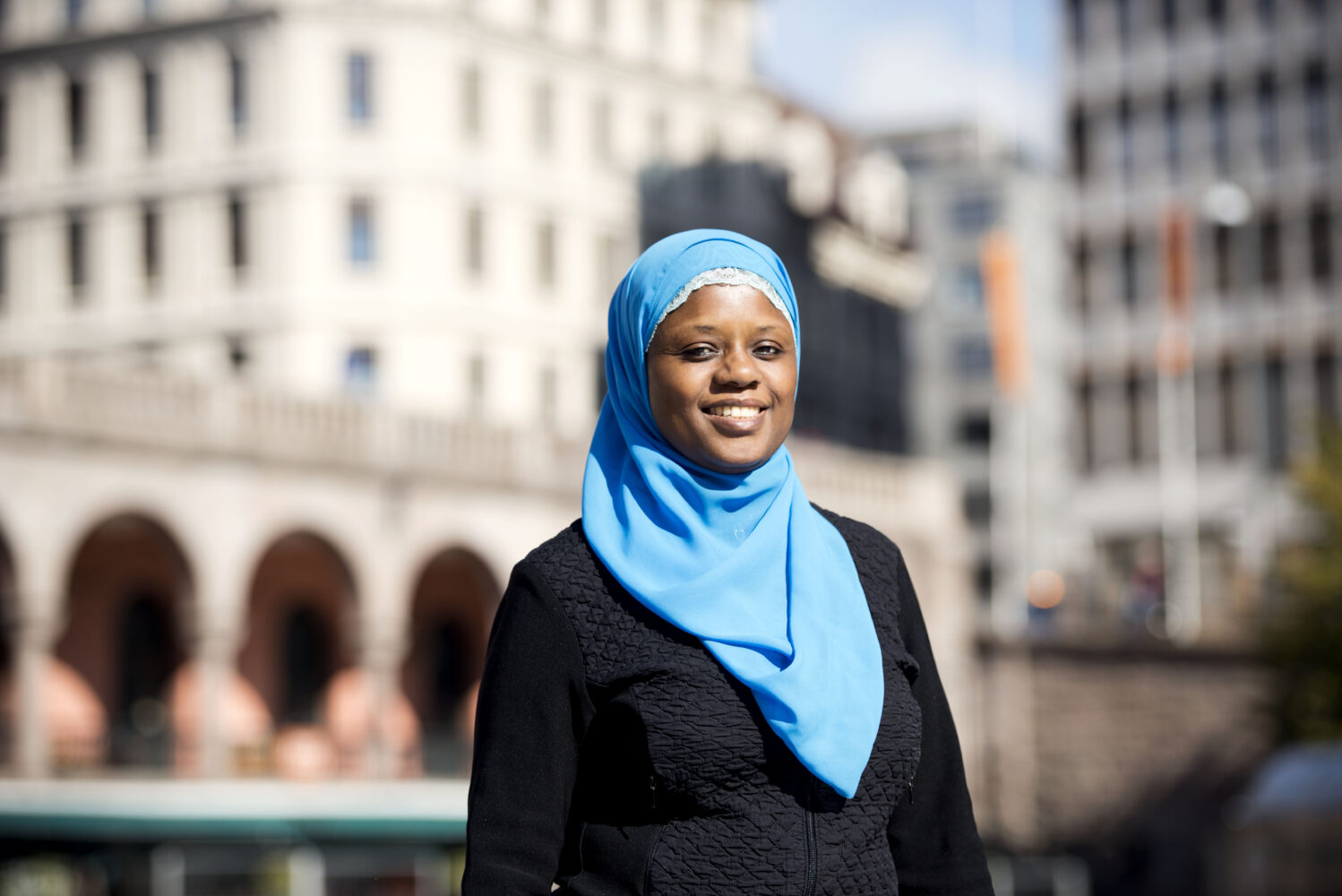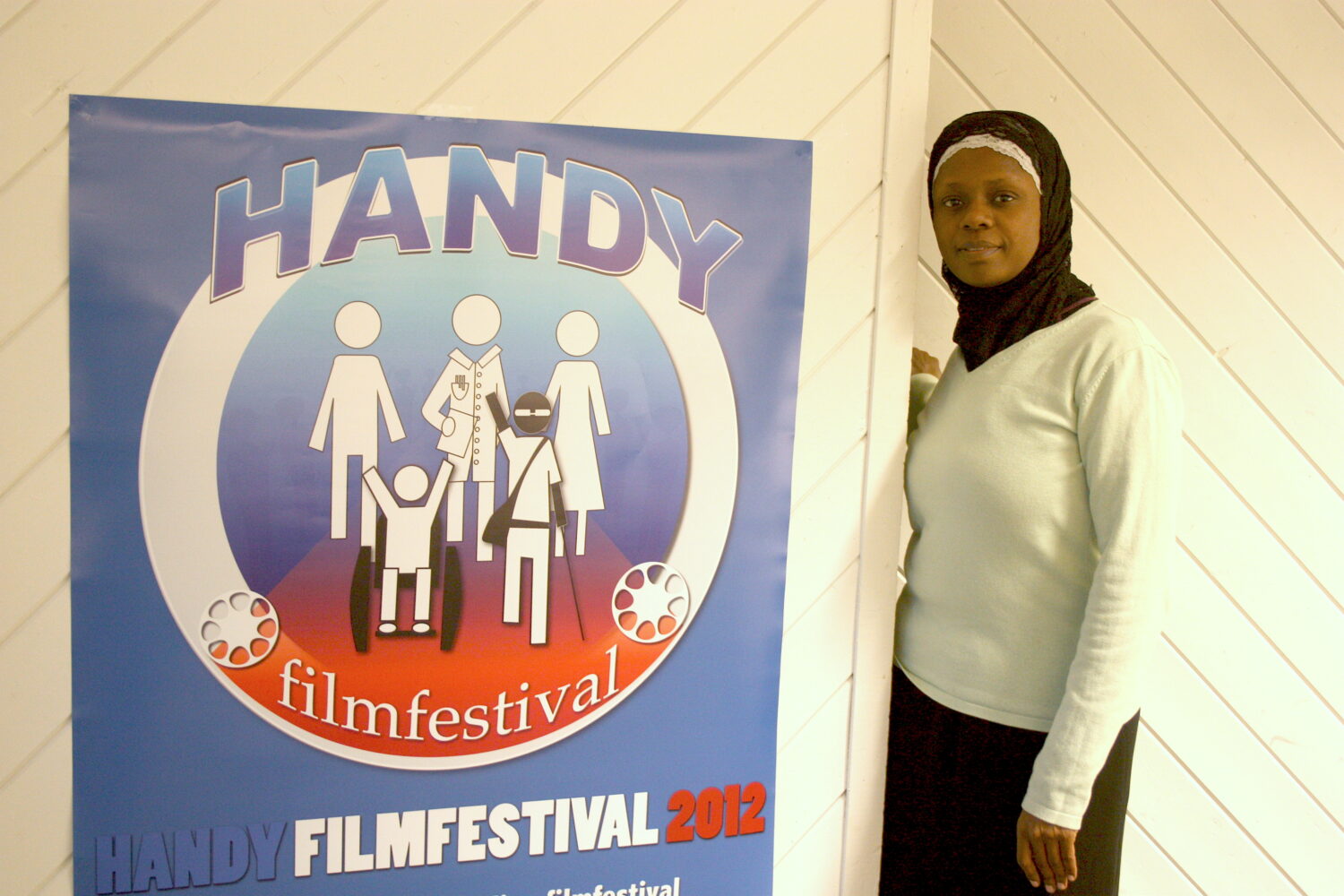History
The idea for the Abloom film festival came about in 2012, when Faridah Nabaggala wanted to mix two of her greatest passions: the art of film and the love of her son, who was born with a disability
Les mer om Ablooms og Faridahs historie her!

I den offentlige jungelen følte hun seg fortapt, fordi hun syntes det var vanskelig å orientere seg. Hvor skulle hun oppsøke hjelp? Hva kunne hun gjøre for å gi sitt barn et best mulig utgangspunkt? Aller verst var misoppfatningene om funksjonsnedsettelser i samfunnet – spesielt i flere minoritetsspråklige miljøer. Religion: Tanken om funksjonsnedettelse som en guddommelig straff, er ikke uvanlig, og Faridah følte seg inspirert til å ta et oppgjør med dette, gjennom cinematiske opplevelser, med mål om å opplyse og inspirere.
The first festival went by the name Handy film festival and saw the light of day in 2012. The following year it changed its name to Abloom, and Faridah founded the organization of the same name.

Abloom, as an organization and film festival, has only grown and grown, with the following philosophy: All children and young people with disabilities should be, valued, seen and heard. With this phrase in mind, the festival won the “Oslo bys kunstnerpris in 2014 – for outstanding efforts in Oslo’s cultural life”, and has been an important contributor to the discourse on disability in Norwegian society. The meeting place has stood out, and the method has helped cultivate a sense of belonging in society. We are the only party within the disability movement that has managed to lift up minority language speakers, their challenges and has come up with a solution to the problem.
Interseksjonelle erfaringer : Abloom har siden 2012 vært tydelig på at man skal kjempe seg fri fra fordommer og holdninger og ikke de grupperingene man hører til. Man er ikke sin funksjonsnedsettelse, men man har.
Selv om alle er velkommen til å delta på festivalen, har Ablooms kjernegruppe i all hovedsak bestått av familier med minoritetsspråklig bakgrunn, hvor en eller flere av barna har én eller flere funksjonsnedsettelser.
Cinematic experiences have an integrative effect. Families with children, school students and adolescents get the opportunity to get to know, and interact, with each other. Another important target group for us is refugees and asylum seekers – this group made up a third of our audience. The festival is an integration arena for refugees and asylum seekers through interaction with the other target groups.
In addition, Abloom has a number of students from primary and secondary schools present. Several are from schools with a high minority language background – hence reception classes, where several have never been to the cinema before. We have also had a project called AFA (Activation of Refugees and Asylum Seekers).
Last but not least, there are a number of representatives from the authorities, organizations and people from the film industry present. By having them at the film festival, we can strengthen our collaboration with several of these, as well as inspiring more people in the film industry to address our core theme in their productions.
All these target groups get a unique insight into our topic. Organization Director Faridah Nabaggala shares her knowledge of the topic to the school classes, giving them the opportunity to interact with our core group. This is how the topic of disability becomes harmless. Everybody’s going!
